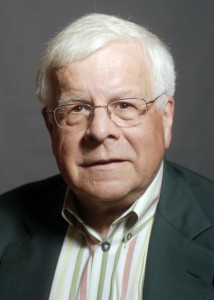Guest commentary: Policy-makers should skip Mackinac Island and visit some classrooms
By Ken Winter
PETOSKEY – I won’t be one of the 1,500 or so of Michigan’s top businessmen, politicians and other leaders converging for three days this week on Mackinac Island for the Mackinac Policy Conference.
I cancelled my plans to attend so I could substitute for a local high school teacher and friend having surgery. Ironically, I will be teaching his students how Michigan’s state and local governments work and affect them directly.
The Detroit Regional Chamber of Commerce holds the conference every spring. After years of sending reporters to cover the gathering, I started attending the event myself to better understand Southeast Michigan’s thinking about our state’s direction.
The conferees, who meet at the Grand Hotel, watch speeches and panel discussions on culture, education and the global market. This year’s agenda is focused on the link between public education and the health of the state’s economy.
Two years ago, I heard founder Geoffrey Canada talk about his non-profit Harlem Children's Zone for poverty-stricken children and families living in Harlem. He shared how HCZ provides free support for the children and families through parenting workshops, preschool, three public charter schools, and health programs for thousands of children and families.
Last year, I learned about similarly targeted programs taking place in Detroit and other urban areas, subsidized by some of the state’s largest foundations and corporations. I continue to watch debates over the value of early childhood education, a mandated state Common Core curriculum, standardized tests and teacher evaluation in large part according to how students perform on standardized tests. Every special interest seems to have its own thoughts as to what’s best for our students.
As fellow retired Michigan newspaper publisher and Center for Michigan founder Phil Power recently wrote in his weekly Bridge Magazine column: “By 2025, Michigan will need 900,000 more workers with an associate degree or higher to fill available jobs. And those with higher levels of education earn more and are less likely to be unemployed.”
More also need to read his Center’s report, “The Public’s Agenda for Public Education.”
Phil couldn’t be more on target about our challenge. I have not been impressed by what I’ve heard from state politicians and special interests to meet this challenge. Lawmakers and business leaders could benefit from real time in a classroom to see what educators have to content before students enter their school doors – broken homes, substance abuse, illiteracy, psychological and physical challenges, poverty and more.
As I used to tell those who criticized my newspaper to come into the newsroom for a week and see how you do starting every morning converting blank newsprint to a newspaper in less than six hours. No one ever accepted my invitation.
While it’s nice to hear folks like Geoffrey Canada and others with access to millions of private dollars for these special schools, what about the public schools and educators that don’t? Who has actually spent time with those in the educational trenches to witness these challenges?
Six years ago, I retired from journalism to earn a master’s in education with teaching certification and am about to complete a second master’s in political science at age 62. I hope eventually to become full-time faculty at my local community college, where I now teach as adjunct faculty for a whopping $10,000 to $12,000 a year and occasionally substitute for my high school friend and mentor for $70.04 a day. Trust me, teachers are not overpaid.
I made the switch, because, like other private business-sector retreads, I want to make a difference in my community. Like a handful of others, I can now afford to teach and introduce students to the outside world and its expectations to become successful. Teaching that is not easy.
Thanks to two veteran Petoskey secondary and middle school teachers, who mentored me during student teaching, and a college professor, who taught 30 years for the Detroit Public Schools in the Cass Corridor, I am, after six years, figuring out the art of teaching. While all of the pundits, data collectors and so-called national experts continue to debate the best course of action, put some of those from the “teaching trenches” on the stage and listen to what they have to say.
See what new members are saying about why they donated to Bridge Michigan:
- “In order for this information to be accurate and unbiased it must be underwritten by its readers, not by special interests.” - Larry S.
- “Not many other media sources report on the topics Bridge does.” - Susan B.
- “Your journalism is outstanding and rare these days.” - Mark S.
If you want to ensure the future of nonpartisan, nonprofit Michigan journalism, please become a member today. You, too, will be asked why you donated and maybe we'll feature your quote next time!


 (courtesy photo/used under Creative Commons license)
(courtesy photo/used under Creative Commons license) Ken Winter, former editor and publisher of the Petoskey News-Review and member of the Michigan Journalism Hall of Fame, teaches political science and journalism at North Central Michigan College in Petoskey, Ferris State and Michigan State University. He serves on the advisory board for Bridge Magazine.
Ken Winter, former editor and publisher of the Petoskey News-Review and member of the Michigan Journalism Hall of Fame, teaches political science and journalism at North Central Michigan College in Petoskey, Ferris State and Michigan State University. He serves on the advisory board for Bridge Magazine.